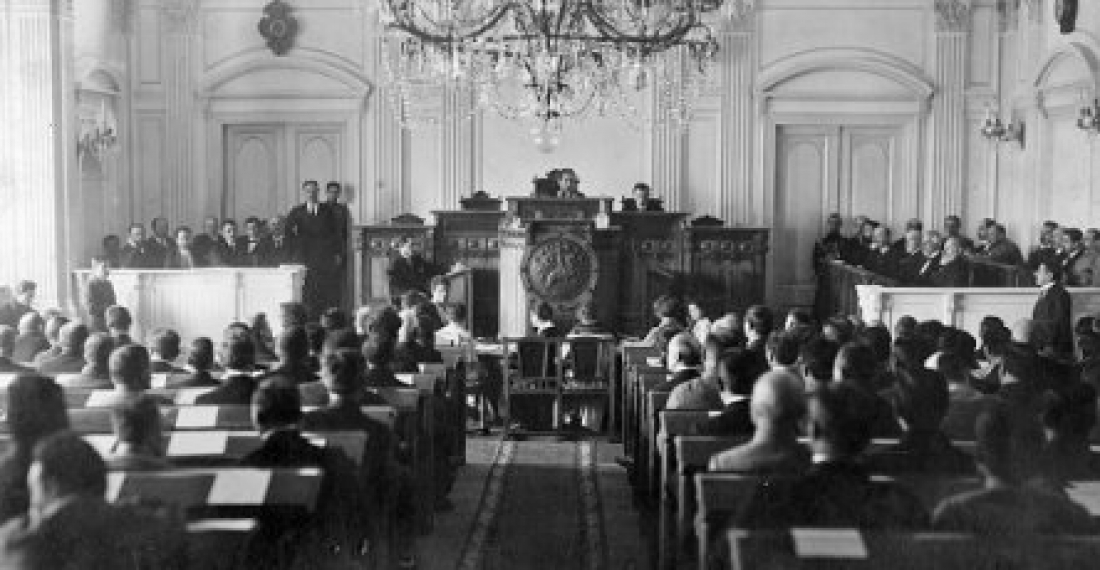As Georgia marks the 100th anniversary of the establishment of the first Georgian republic on 26 May 1918, young Georgian thinker, Giorgi Arziani reflects on the significance of that event, and says that in many respects this was the "golden period of Georgian politics". Arziani was speaking at an event held in Tbilisi on 11 May 2018 during which participants from Armenia, Azerbaijan and Georgia joined together to mark the 100th anniversary of modern statehood in the South Caucasus.
Georgia's declaration of independence and the establishment of the Georgian Democratic Republic happened on 26 May 1918.
The short period of independence was devoted to state-building. Reforms took place in nearly every sphere of government: land reform, military, justice, labour, local government and education.
The Social Democrats were in power and Georgia was one of the most progressive countries of the time. For example the world's first democratically elected Muslim woman was from Georgia. Her name was Peri-Khan Sofieva, she ran as an independent candidate in the Karajala province, in the elections held in 1918, and became a member of Tbilisi District Assembly. We now perceive this period to have been, to a certain extent, the golden period of Georgian politics.
Stephen Jones, an American historian, sums up the achievements of the Georgian Democratic Republic in these words:
"For all Georgian democracy's flaws in these years, the First Republic was an outstanding achievement. Civil rights and dissent were recognized and, on the whole, legally protected. Society gained autonomy from the state. It preserved the two cardinal institutional guarantees of democracy - the right to participate and the right of public contestation - which includes freedom of expression, freedom to form and join organizations, the right to vote, and the existence of free and fair elections. This was truly remarkable, given the conditions and the times."
"This was truly remarkable, especially in comparison with the hell which Soviet Russia represented", wrote Karl Kautsky, a Czech-Austrian philosopher, "Georgia appeared as a paradise".
 But we know what happened next. Russia invaded Georgia in February 1921. After several weeks of struggle the Georgian government went into exile. Before they left, the first copies of the Georgian constitution were printed and signed in Batumi. (picture left) Then the members of the government boarded a ship and left the country.
But we know what happened next. Russia invaded Georgia in February 1921. After several weeks of struggle the Georgian government went into exile. Before they left, the first copies of the Georgian constitution were printed and signed in Batumi. (picture left) Then the members of the government boarded a ship and left the country.
I believe that the legacy of the first republic played an important role in what happened later in the century, when in 1991 Georgian the independence was not declared, but restored.
Source: Giorgi Arziani is a young Georgian thinker based in Tbilisi. He was speaking at an event held in Tbilisi on 11 May 2018 during which participants from Armenia, Azerbaijan and Georgia joined together to mark the 100th anniversary of modern statehood in the South Caucasus.The event was organised by LINKS (DAR) and the Borjomi Innovators Network. Read more about the event here
Photo (top): The declaration of the independence of Georgia on 26 May 1918






